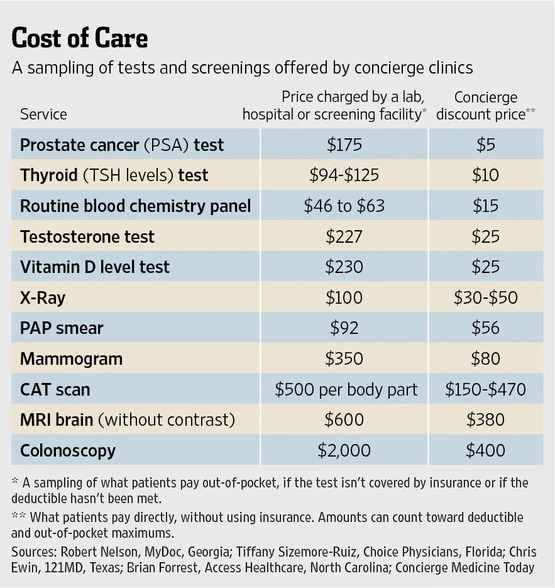In a time where we’re driven by constant connectivity and immediate access, it’s surprising how healthcare accessibility hasn’t always kept pace. Accessibility has long been a challenge for many, with limited office hours, scheduling difficulties, and delayed appointments hindering timely care. Now, healthcare is taking on all new dimensions.
Imagine having a trusted medical partner available day or night, ready to address your concerns, answer your questions, and coordinate your care. This is the promise of concierge medicine.
It’s a model that not only empowers patients with the ability to receive immediate medical attention at any hour, but it also has the potential to redefine healthcare accessibility on a global scale. Meaning, it doesn’t just change the game for patients but for providers, and healthcare systems in meaningful ways too.
Let’s examine the potential impact of accessible concierge healthcare from all angles.
Understanding 24/7 concierge medicine
So, what is concierge medicine?
In essence, it’s a membership-based healthcare model that prioritizes enhanced access and personalized care. 24/7 concierge medicine takes this a step further by ensuring that patients have access to their healthcare providers around the clock, even outside of traditional office hours. This accessibility is often facilitated through telemedicine, allowing for virtual consultations and diagnoses without the need for in-person visits. This isn’t just a boon for patients; for healthcare practices, it’s a way to enhance patient satisfaction, improve health outcomes, as well as streamline operations. By offering a more hands-on, continuous care approach, practices can build stronger relationships with their patients. These relationships are then more likely to lead to increased loyalty and better adherence to treatment plans.
7 Benefits of Accessible Concierge Healthcare
The benefits and convenience of concierge care extend to a wide spectrum of individuals and the healthcare system itself, surpassing the limits of what traditional primary care packages offer. Busy professionals, seniors, individuals with chronic conditions, and those living in remote areas can all find value in this heightened level of healthcare accessibility.
1. Immediate Physician Access and Preventative Care
With prompt attention to concerns through concierge urgent care, minor ailments can be addressed before they escalate, potentially reducing the need for emergency room visits. By facilitating early intervention and preventative care, concierge medicine can significantly lower these costs for both patients and healthcare systems. It also helps to alleviate pressure on overtaxed emergency departments, allowing them to focus on true emergencies. In turn, healthcare practitioners can offer more personalized care, as they can dedicate more time to each patient and manage their patient load more effectively.
2. Health Monitoring and Chronic Illness Management
For those with chronic illnesses, 24/7 concierge medicine becomes a lifeline. Continuous healthcare access facilitates early detection and intervention of potential issues for managing conditions like diabetes, heart disease, or respiratory disorders. This is especially important for seniors and those living in remote areas who have difficulty accessing specialized care.
3. Global care
Telemedicine-led concierge medicine services are not limited by geographical boundaries. Patients can access their healthcare providers from anywhere in the world, ensuring consistent care and continuity even when traveling or living abroad. This type of global healthcare access is ideal for frequent travelers or expatriates serving as a key component of a travel risk management strategy to address travel health risks effectively.
4. Personalized care
The relationship between a concierge doctor and a patient is far more personalized than in traditional healthcare models. Knowing a patient’s medical history inside and out allows for faster problem-solving and more effective treatment plans.

5. Reduced Financial Pressure
While concierge medicine involves a fee, it can lead to long-term savings. By preventing unnecessary hospitalizations and ER visits, and providing proactive care that focuses on overall wellness, this helps avoid costly medical interventions down the line.
6. Mental Health Benefits
It can also support mental health by providing a reliable point of contact for individuals experiencing anxiety, depression, or other mental health concerns.
7. Enhanced Medication Management
Having a doctor available to address medication issues at any time can prevent complications and ensure patients are taking their medications safely and effectively.
The Convenience of Concierge Care
24/7 Availability
Concierge healthcare providers are accessible at all hours, ensuring that patients can reach their physician whenever they have a health concern. This constant availability provides reassurance and timely intervention.
Same-Day Appointments
Unlike the often-extended wait times for appointments in traditional healthcare settings, concierge primary care practices prioritize timely care by offering same-day appointments. This is particularly beneficial for acute conditions or concerns that require prompt attention.
Telemedicine Capabilities
The integration of telemedicine within concierge medicine has greatly expanded access to care. Patients can consult with their physicians virtually, regardless of their location, using secure video conferencing or phone calls. This reduces the need for travel and allows for convenient, real-time consultations.
House Call Services
Some providers extend their services beyond the clinic by offering house calls. This option brings medical care directly to the patient’s home, providing comfort and convenience, particularly for those with mobility limitations or those recovering from surgery or illness.
Direct Access to Specialists
Many often have established relationships with a network of specialists, allowing for smoother referrals and faster access to specialized care. This can be invaluable for patients with complex medical conditions who require coordinated care from multiple experts.
Personal Medical Kits (PMK)
Some providers, like WorldClinic, equip their members with Personal Medical Kits (PMKs). These kits contain essential medical tools and resources, such as a blood pressure monitor, basic medications, and tailored prescription medications. All of which allow patients to monitor their health and address most issues directly wherever they are.
Conclusion
As our understanding of healthcare evolves, so too must our approach to its delivery. 24/7 concierge medicine stands as a testament to this progress, redefining what it means to have accessible healthcare. By breaking down barriers of time and location, it empowers patients to take charge of their health and well-being while simultaneously supporting healthcare practitioners in providing personalized, effective care.
If you’re ready to experience the convenience of concierge care for yourself, consider exploring WorldClinic’s membership plans. Our comprehensive services can provide you with peace of mind, knowing that your health is always a top priority. View our membership plans, or feel free to get in touch if you have any more questions.
Frequently Asked Questions
Why concierge medicine?
Concierge medicine offers several advantages, including 24/7 access to physicians, personalized care, same-day appointments, telemedicine capabilities, and proactive health management. It prioritizes the patient-doctor relationship and focuses on preventative care, making it an attractive option for those seeking a higher level of service and attention.
How do I choose a concierge care provider?
When selecting a provider, consider factors like the provider’s experience, qualifications, services offered, membership fees, and patient reviews. Researching different providers and comparing their offerings can help you make an informed decision.
How does concierge care handle emergencies?
Providers typically have established protocols for handling emergencies. This may include direct access to emergency services, coordination with local hospitals, and telemedicine consultations for immediate guidance. It’s important to discuss the provider’s emergency procedures before enrolling in their program.
How much does concierge medicine cost?
The cost of concierge medicine can vary depending on the provider, services offered, and location. Generally, it involves an annual or monthly membership fee.
What are the typical services included in a concierge care membership?
Common services include 24/7 access to physicians, same-day appointments, telemedicine consultations, personalized wellness plans, preventative care, chronic disease management, coordination of specialist care, and travel medicine consultations. Some providers may also offer house calls, laboratory services, and access to exclusive medical facilities.
What is the concierge medicine model for remote patients, busy professionals, and seniors?
Concierge medicine is well-suited for remote patients, busy professionals, and seniors due to its focus on accessibility and personalized care. Remote patients benefit from telemedicine consultations and virtual care, while busy professionals appreciate the convenience of same-day appointments and 24/7 access. Seniors with chronic conditions can receive ongoing monitoring and support, leading to improved health outcomes.
How does concierge medicine compare to traditional primary care?
Concierge medicine vs traditional primary care differ in several ways. Concierge practices typically have smaller patient panels, allowing for more personalized attention and longer appointment times. They offer a wider range of services, including 24/7 access, telemedicine, and proactive health management, often not available in traditional practices. However, concierge medicine usually involves a membership fee, whereas traditional primary care is often covered by insurance.


